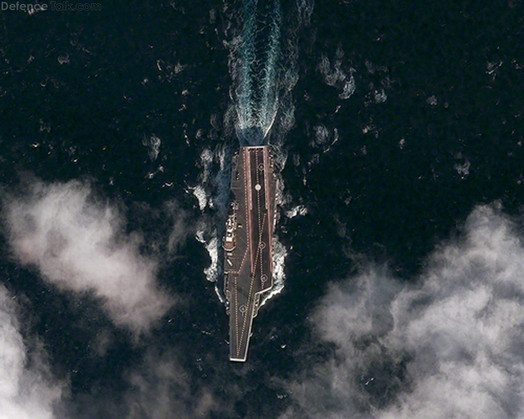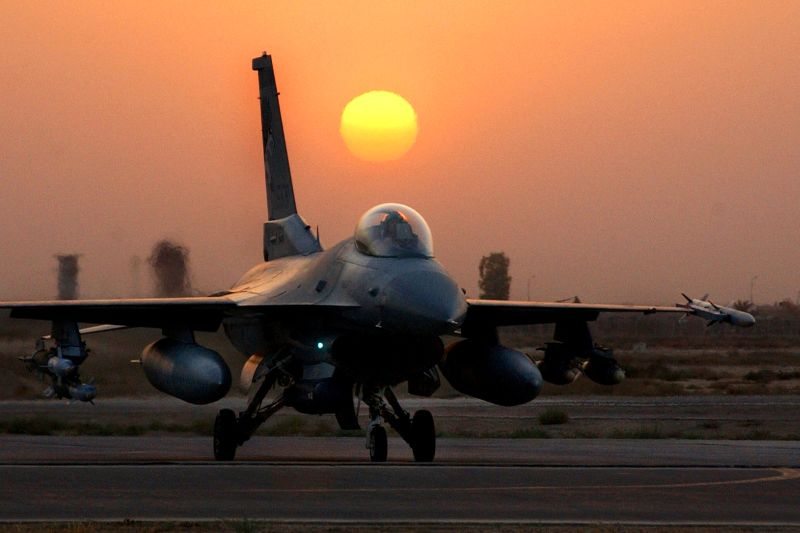Within only a month, the development of China’s aircraft carrier experienced the official delivery of the “Liaoning Ship” to the Navy of the Chinese People’s Liberation Army (PLA) and the successful taking-off and landing training of the carrier-borne J-15 fighter nicknamed “Flying Shark” on the deck of the aircraft carrier. Western observers feel astonished at the speed of the development of China’s aircraft carrier and no longer doubt that China’s first aircraft carrier formation will debut in the near future.
A naval open-sea taskforce mainly composed of warships from the East China Sea Fleet under the PLA Navy sailed to the vast waters of the West Pacific Ocean and carried out routine drills again on November 28, 2012. During the open-sea training, the taskforce conducted training on such subjects as round-the-clock navigation and defense, open-sea combat and supply and escort for large surface ship. Military experts speculate that such open-sea training may be the preparation for the building of China’s first aircraft carrier formation.
Various fleets started mission-oriented formation drills
Actually, various fleets under the PLA Navy had begun mission-oriented drills before the commissioning of the “Liaoning Ship”. Especially in recent years, the lineup and formation, communication and command and combined tactics of large surface ship taskforce have become the basic components of open-sea training of the PLA Navy.
A joint taskforce under the North China Sea Fleet of the PLA Navy consisting of seven warships, including the “Harbin” and “Shijiazhuang” guided missile destroyers, also carried out coordinated training among multiple arms in the waters of the West Pacific Ocean in early October. Obviously, with the official delivery of the aircraft carrier “Liaoning Ship”, the PLA Navy will timely carry out joint taskforce drill between the “Liaoning Ship” and other surface ships.
Most of the main active warships can be incorporated into the aircraft carrier formation
Based on the existing PLA naval ships, the “Liaoning Ship” has been able to be built into a formation focusing on control of the air and the sea in accordance with task requirements.
Judging from the warships’ performances and experience, most of the main active warships of the three major fleets under the PLA Navy can be incorporated into the aircraft carrier formation, such as the guided missile destroyers “Lanzhou” (170 warship) and “Haikou” (171 warship), nicknamed the “China’s aegis” of the South China Sea Fleet. All the comprehensive supply ships in various fleets, such as the “Hongze Lake” comprehensive supply ship (881 warship), can undertake the open-sea comprehensive supply for the aircraft carrier formation.
Future aircraft carrier formation will be composed of latest-type warships
Restricted by such factors as the experience of aircraft carrier operations and the number of the PLA main naval ships, China’s aircraft carrier formation will be kept in an appropriate scale, and mainly composed of the “Liaoning Ship”, four to six guided missile destroyers and guided missile frigates, one to two nuclear attack submarines or new-type conventional submarines and one comprehensive supply ship. The formation will be constantly tested and adjusted during training.
Compared with that of the U.S. Navy, the first aircraft carrier formation of the Chinese Navy will have more experimental and transitional characteristics.
With the increasingly accelerated modernization of the PLA naval ships, the future aircraft carrier formation will be composed of China’s latest-type surface ships and new-type nuclear attack submarines. Large amphibious warfare ships and open-sea comprehensive supply ships will also be included in the formation.
Undoubtedly, combat effectiveness is the unique yardstick, whether the future aircraft carrier formation is based on the active warships or on new-type information-based warships. The PLA Navy has just taken its first step in building the aircraft carrier formation, and it will need at least five to ten years before the aircraft carrier formation has the real combat effectiveness and comprehensive attack-and-defense capabilities in coastal waters and open-sea.











